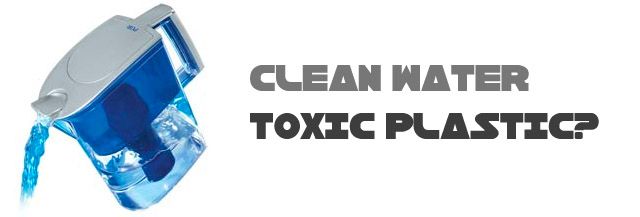In our most recent article, we talked a lot about the ideal pitcher water filter. What we did not mention in that article is the possible presence of BPA plastic or other harmful chemicals in the actual products themselves.
This is something that is easy to overlook when it comes to water purification devices. When you focus all your energy on whether the device removes substances from the water, it can be easy to overlook whether the product itself is possibly harmful.
In fact, our attention was drawn to this issue by a reader of the site. In our article on Brita vs. PUR filters (you can read it here), a commenter noted that we did not even bring up the quality of plastic used in any of the products we discussed. This is a worthy point and it is why we would look to turn our attention to the topic in this post.
When conducting research, we came across a number of websites and some informal reports. One of the more encouraging pieces we read came from this article that consists of a letter exchange that the author had with both PUR and Brita. Both companies claim that their products are free of BPA plastic and other harmful chemicals that could be used in surface coatings.
The author was less convinced by PUR’s response because they used some standard lines that seem to cover them while not being very assertive in themselves. For example, saying that they heed industry standards and regulations – this may sound good on the surface, but in reality it could just mean that the industry standards aren’t stringent enough and PUR is taking advantage of this.
We have endorsed PUR on several occasions on this site. We believe that they make a better water filter and this conclusion is drawn from empirical evidence as well as research. Some of this research comes from organizations like NSF International, which is a 3rd party non-profit that conducts objective research on a variety of products.
We continue to endorse PUR, but this is a concern that we are seriously looking into – whether PUR really covers all of the bases when it comes to ensuring that their product is as safe to use as possible. Please stay tuned for future updates on this topic. We will be posting a round-up of studies as well as few reader emails that we have received on the issue. If you want to weigh in on any of this, please see the comments section below.







{ 1 comment… add one }